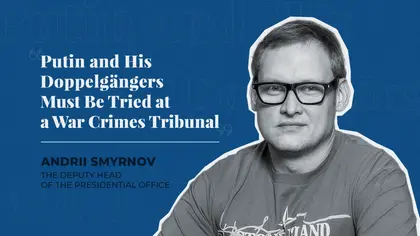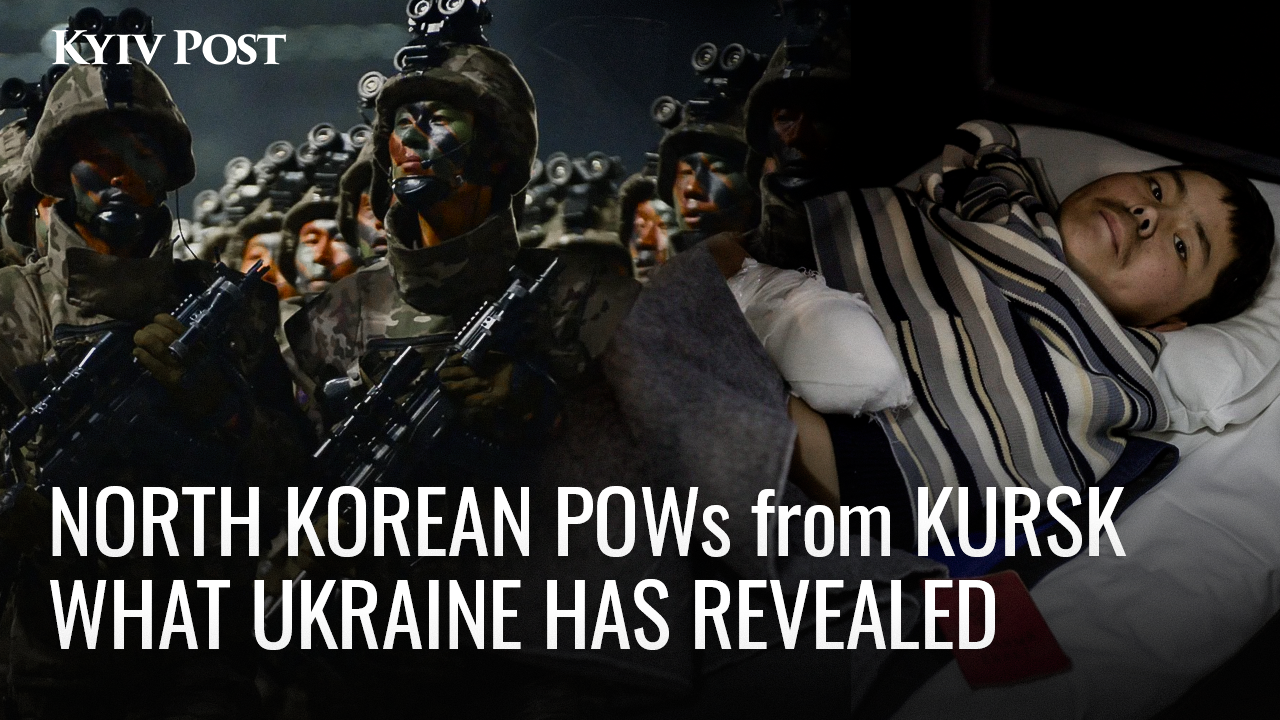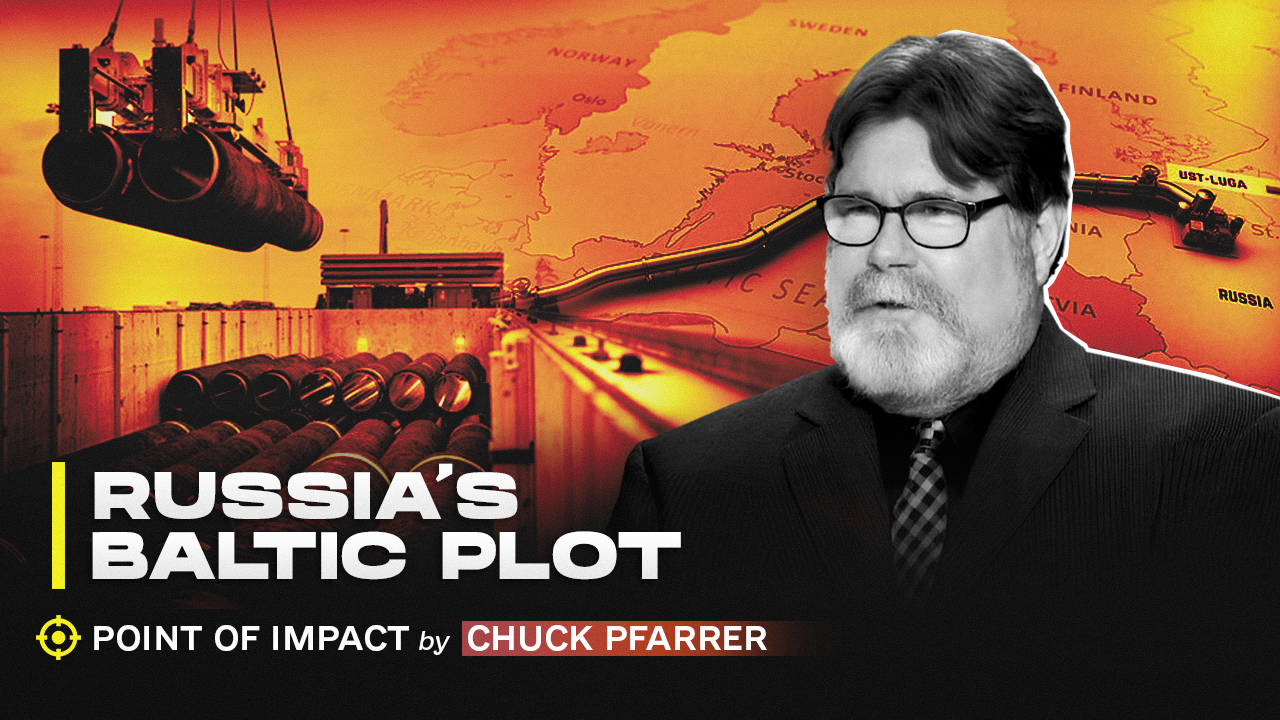Andriі Smyrnov, the Deputy Head of the Presidential Office, sat down with the Kyiv Post to discuss a war crime tribunal for Putin, his government officials, and other associates for unleashing the full-scale Russian invasion in Ukraine. He discussed the possible formats of the Special Tribunal, the timeline for implementation (possibly by this summer), and who will be prosecuted - including the infamous Putin body doubles, and if the death penalty is on the table.
- View the most recent Ukraine news pieces that came out today.
- View the most up-to-date Ukraine news articles published today.
Additionally, he talked about the discussions among the civilized countries and why they differ on how the tribunal should work, and Ukraine’s position on the matter.
JOIN US ON TELEGRAM
Follow our coverage of the war on the @Kyivpost_official.
The idea of creating a Special Tribunal for Russia was first voiced immediately after Feb. 24, 2022. Since then, the Ukrainian authorities have been working out various mechanisms to hold Putin and his associates to account.
Currently, there are 30 countries involved in this work. So far, they have proposed three models for the tribunal. One of those - the hybrid one - does not suit Ukraine.
Smyrnov said Ukraine and its partners may establish a single, agreed upon format by this summer, if certain countries overcome their skepticism.
Tell us about the tribunal models that are currently under consideration.
There are three models at play.
The first model involves creating the tribunal based on the agreement between Ukraine and the UN with the adoption of the relevant resolution by the UN General Assembly.

Now It’s Time to Pull Together – Surely?
The second one is based on an open multilateral international agreement between the states of the civilized world.
The third one would be a hybrid model that would create a tribunal as a court within the framework of the Ukrainian national judicial system. It could work both in Ukraine and abroad, and international judges could be involved.
Putin and all members of the Security Council must be tried for committing the crime of aggression against Ukraine.
The first two models work well for us, especially the first one with the creation of the tribunal by a joint resolution of the UN and Ukraine. It is the fastest option, and it legitimizes the readiness of the civilized world to punish the crime of aggression for the first time in 70 years.
The second format suits us too, but not to the same extent. Creating such a tribunal is going to take more time, considering how long it may take for participating countries to sign and ratify the treaties.
It can't be done in a day, a week, or a month; it is all going to come down to how actively the governments are going to promote the idea of a tribunal and how powerful public opinion will be, as the situation in individual "skeptical" countries varies.
For example, last November we conducted polling in France. Public opinion largely supports the tribunal on Russia but this does not exactly match the position of officials; either way, we are trying to remedy this situation.
The third model, quite frankly, does not work for us at all. There are many reasons: starting with the fact that it is unconstitutional - it would require changing the Ukrainian Constitution, which is impossible during wartime.
Secondly, creating the hybrid tribunal as a court within the national court system from a legal point of view could reduce the perception of this aggressive war to being just a mere conflict between two countries. That’s not good.
Thirdly, we don't need a verdict by Ukraine; we need a tribunal decision issued by the civilized world. This is crucial.
It is mostly the “skeptical” countries speaking in favor of the hybrid tribunal.
Which countries are these?
Many of them - the U.S., the U.K., France, and Germany.
But their position can also change - it depends on how comprehensive and dynamic the advocacy work is.
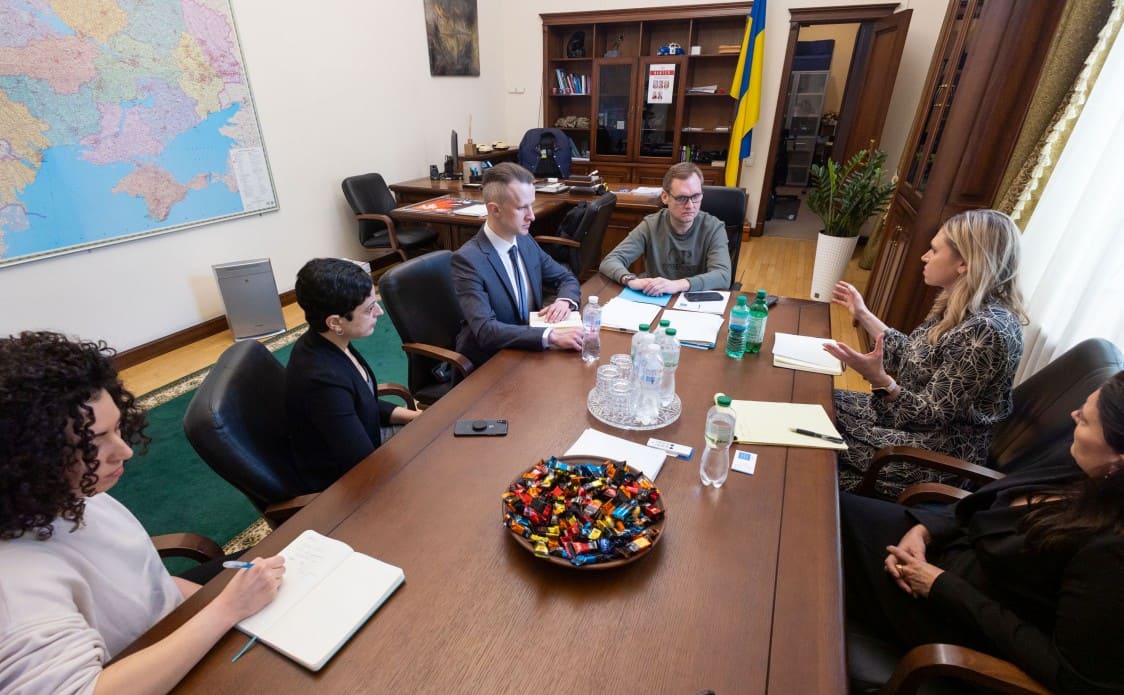 Deputy Head of the Office of the President of Ukraine Andrii Smyrnov met with representatives of the largest U.S. human rights organization Human Right Watch.
Deputy Head of the Office of the President of Ukraine Andrii Smyrnov met with representatives of the largest U.S. human rights organization Human Right Watch.
Why do the U.S., Britain, France, and Germany want this hybrid option?
There are many reasons for that. Some of them, perhaps, do not want any audits or review of their own involvement in various conflicts. In other words, they do not want to set precedents for such tribunals (against themselves).
Write this down: none of the military or peacekeeping campaigns in human history sought annexation of the territories of other independent states, the genocide of a local population, or numerous crimes against humanity. There was no such thing. We are dealing with Russia, which is an aggressor country at a fundamental level.
We need to establish tribunals before Ukraine wins. A tribunal or any other international prosecution mechanism established after our victory will be subject to speculations Otherwise, it is going to look like the victor is judging the vanquished.
Many reputable international lawyers and experts, such as Geoffrey Nice, a British lawyer who was a prosecutor during the International Tribunal for the former Yugoslavia, claim that the world needs a permanent universal tribunal, and I wholeheartedly agree.
But what about the mechanism of such a tribunal? It simply does not exist. I am deeply convinced that the world will inevitably face the need for an institution of this kind.
Last week, UN Secretary-General António Guterres visited Ukraine and had a meeting with President Zelensky. Was the issue of voting on the resolution regarding the creation of the tribunal addressed?
The President of Ukraine constantly advocates for the inevitable punishment for the crime of aggression against Ukraine committed by Russia - early and often, at all levels. He does this not only with the UN Secretary-General, but in his communication with other international leaders as well.
The vote will take place at the end of March?
We are discussing it. Now we are fighting for the wording - we fight for every word in the resolution.
Which word or phrase is the most important one?
The “international mechanism.” I believe that a simple “mechanism of responsibility for committing the crime of aggression” is not good enough for the international assessment of what is going on in Ukraine.
You have already mentioned the Coordinating Group of countries that are working on creating the tribunal. Tell us in more detail how the process is organized and which countries are part of it.
The countries that are a part of it are: Ukraine, Lithuania, Latvia, Estonia, the Czech Republic, Romania, Liechtenstein, the Netherlands, Sweden, France, Poland, Germany, Belgium, Luxembourg, Great Britain, Italy, Canada, the US, Denmark, Japan, Australia, and others.
During the work of the Coordination Group, several important issues related to the creation and the work of the tribunal are being discussed.
It is mostly the “skeptical” countries speaking in favor of the hybrid tribunal - the U.S., the U.K., France, and Germany.
The format of the tribunal, the personal and functional immunities of those who need to be prosecuted, the draft resolution of the UN General Assembly, and the ongoing work of the International Center for the Criminal Prosecution for the Crime of Aggression against Ukraine.
This center is a temporary office of prosecutors that also involves Ukraine; it is gathering evidence of the crime of aggression.
So, there are some voices in this Coordination Group saying that an international tribunal should be created and not a hybrid one, right?
Various opinions are voiced in this Coordination Group.
Is there a chance that those suggesting the creation of a hybrid tribunal will prevail, and Ukraine will be forced to fold?
Ukraine can't be forced to give up. We are deeply convinced that the international tribunal is the only mechanism that can bring Russian top echelons of power to justice and do so effectively and quickly. We convey this message every day.
It is not just Ukraine that advocates this scenario - the idea finds wide support. The civilized world is called so because we are allowed to voice different opinions. One needs to hear and discuss them, and consider all the pros and cons and risks. We are convinced that we will bring the idea to its logical conclusion in the form of a special international mechanism.
Among the members of the Coordination Group, you've listed mostly European countries. What about the countries of South America, Africa, and the Middle East - are they also encouraged to cooperate?
We communicate with the countries of Latin America. In recent days, we have held several negotiations with Argentina and Mexico, and now Brazil has decided to contribute to drafting the formula of peace.
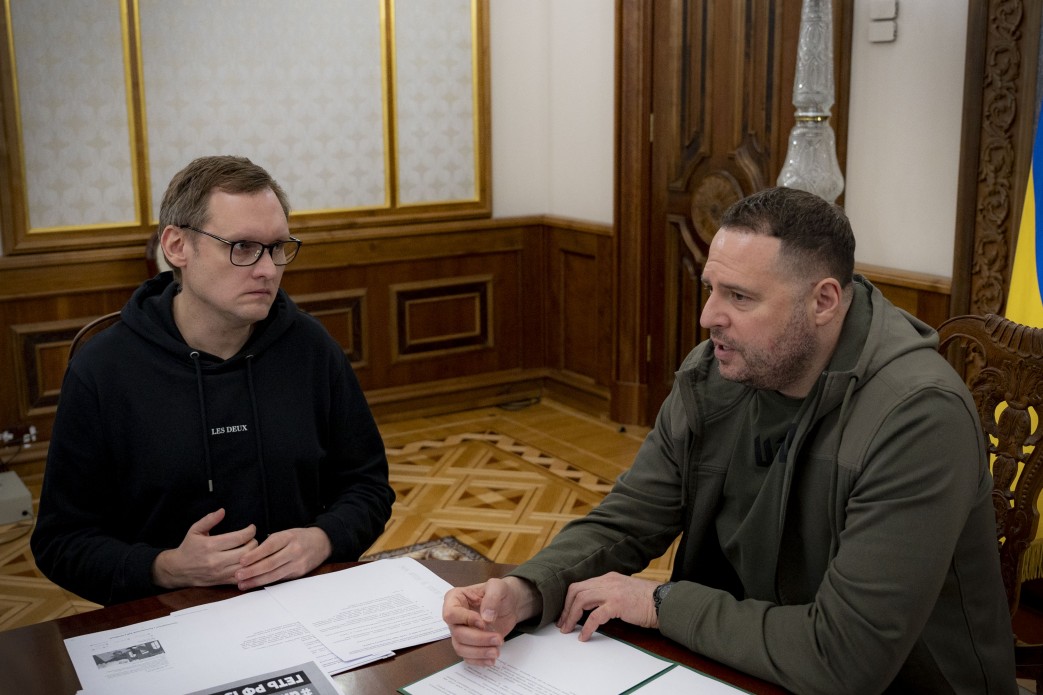 Andrii Smyrnov and Head of the Office of the President Andriy Yermak.
Andrii Smyrnov and Head of the Office of the President Andriy Yermak.
Who else might join this coordination group?
From the countries of Latin America, we currently have Guatemala.
Which date should be considered the start of Russian aggression at the tribunal - February 24, 2022, or 2014, when the first boot of a Russian soldier was set on Ukrainian soil?
I would have started collecting, systematizing, and investigating all crimes from the very start of Russian aggression - that is, since 2014. I don't know what share of the evidence the Office of the Prosecutor General is handing over.
Can the tribunal use the decision of the court in Strasbourg from January 25, 2023, that Russia has exercised de facto control over occupied Donbas since May 11,2023?
Of course. All these decisions will have, let's say, precedential and prejudicial significance for the other decisions, including the ones taken by international institutions. Already with proven specific legal facts, including proven guilt in the crime of aggression and other crimes.
Let's go through the names. What public figures in Russia could face a tribunal?
Before answering this question, we need to understand what the crime of aggression is.
The crime of aggression is the adoption of a certain administrative decision by a certain official who has a functional mandate to use the armed forces of his country against the territorial integrity and independence of another country.
We are talking about people who gave the order to use armed forces against Ukraine. So can the commander of a platoon, company, battalion, or Russian army give such an order? No.
We are deeply convinced that the international tribunal is the only mechanism that can bring Russian top echelons of power to justice and do so effectively and quickly. We convey this message every day.
Can the Minister of Defense issue an invasion order on his own? No.
The primary order is issued by the president, the supreme commander of the country.
How did it happen in Russia? It is important to follow the chain of decisions that led to issuing the order to invade Ukraine.
First, Putin assembled his Security Council, which is basically his private property at this point, and asked the members whether it was advisable to defend Donbas.
After that, Putin made a decision to start what he believed was a so-called special military operation in Ukraine. That is, to commit the crime of aggression against the independence of another country, to attack independent Ukraine with the Russian army.
Therefore, I see the legal connection between the two decisions in the order of their sequence.
In fact, the highest military and political leadership of the Russian Federation - Putin and all members of the Security Council must be tried for committing the crime of aggression against Ukraine.
Evgenyi Prigozhin, who does not hold any official position but, as everyone knows, heads the "Wagner" PMC, is also involved in the war against Ukraine. Can he face the tribunal?
He is not a part of the military and political leadership of Russia. This person should be tried for the specific war crimes he committed in our country.
In a Ukrainian court?
Why not use the mandate of the International Criminal Court (ICC)? Is it related to the crime of genocide against Ukrainian people, to crimes against humanity? Certainly.
And what about Lukashenko, the self-proclaimed President of Belarus?
Is Lukashenko complicit in committing the crime of aggression? In my opinion, he is.
On February 24, 2022, from Belarus (where he seized power after unfair elections), the combat helicopters and planes that bombed Ukraine were launched, heavy military equipment crossed the border and Russian troops entered our country. He is complicit in the crime of aggression.
What is the reaction of the international community? Several decisions of the European Parliament emphasize the need for the rapid establishment of an international tribunal.
We have every chance to resolve methodological, organizational, and legal issues of establishing and organizing the work of the tribunal by this summer.
They also clearly record the responsibility of the Lukashenko and Putin regimes. This is the legal and political assessment given by the civilized world.
And yet, at the diplomatic level, Ukraine does not say Belarus is at war against Ukraine.
Thankfully, Belarusian troops don't participate in the war against Ukraine. We are talking about other things, namely about the responsibility of an official who may be accused of being complicit in the crime of aggression.
Can Russian propagandists be prosecuted?
The role they played in committing the crime of genocide against the Ukrainian people, the crimes against humanity, and fueling this war can be proven both within the mandate of the ICC and by our institutions.
Ukrainian intelligence chief Kyrylo Budanov has repeatedly said that Putin has doppelgängers. The question arises, whom - and how - can we persecute if there indeed are some doppelgängers?
Even if there are triplegängers!
Look, what we need to do is prosecute both Putin and everyone who resembles him and has a Russian passport. Everyone who looks like him should be prosecuted. It is critically important not to make a mistake and miss the real Putin.
And to find him, we need to gather all of them and find who is the real one. Or prove his doppel- or triplegängers are also complicit.
If one of those who should be prosecuted dies before the trial, should there still be a sentence?
Crimes of aggression are subject to conviction and punishment regardless of whether the offender is dead or alive. This crime must be proven, and the offender must be punished.
It is a question of the dignity of our country and the dignity and maturity of the civilized world. We need to call a spade a spade and address international criminals as such, both legally and de facto.
And time will show whether they are going to die in hiding as international criminals or they are going to serve a real sentence.
Is the death penalty even being considered?
That's a tough question. In the Rome Statute and other documents used by the ICC, the crime of aggression is punishable by imprisonment, the span ranging from 30 years to life imprisonment. The death penalty is not listed there.
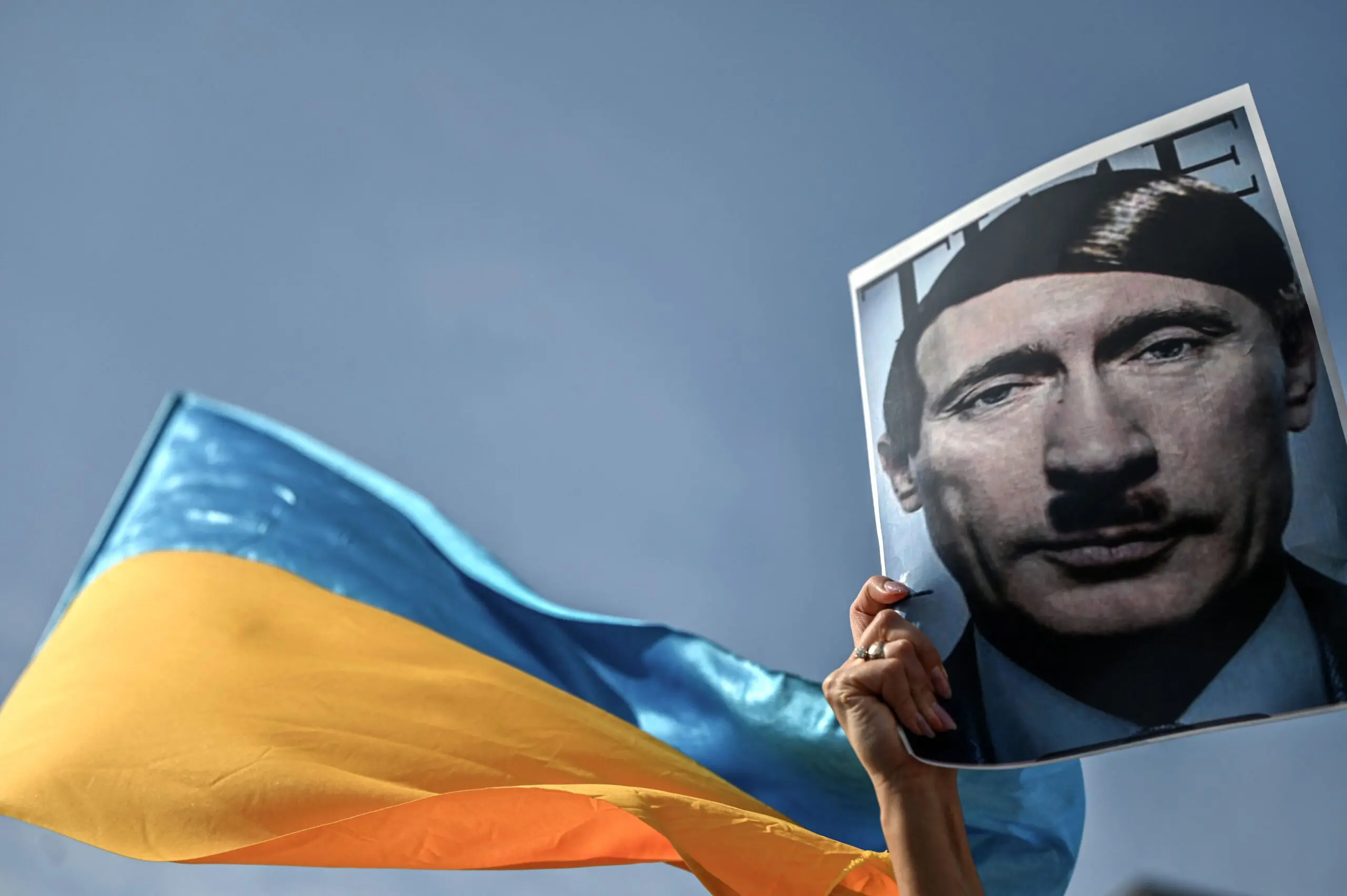 A poster with Vladimir Putin as Adolf Hitler at a rally against the Russian invasion of Ukraine, February 26, 2022, Istanbul, Turkey. Photo: OZAN KOSE/AFP
A poster with Vladimir Putin as Adolf Hitler at a rally against the Russian invasion of Ukraine, February 26, 2022, Istanbul, Turkey. Photo: OZAN KOSE/AFP
Who is going to pay for the work of the tribunal?
The question of financing the tribunal has been repeatedly raised in the resolutions of the European Parliament and the Parliamentary Assembly of the Council of Europe.
They emphasized the decision to provide technical and financial support for the establishment of the tribunal. This will be decided after the format of the tribunal has been chosen.
In a positive scenario for Ukraine, where our partners agree to create a court based on the first model, when could it start working?
It has been a year. During this time, we have received a plethora of decisions regarding political support from the European Parliament, the PACE, the NATO Assembly, the OSCE, the Committee of Ministers of the Council of Europe,
There are ratified resolutions of parliaments of individual countries, the launch of the Coordination Group, and the agreement with The Hague regarding the location of the tribunal.
We are skyrocketing. If we keep up this pace, I am fairly positive that by this summer, the Coordinating Group should have overcome all obstacles to a final verdict satisfactory for the whole civilized world.
And if this happens, then we have every chance to resolve all methodological, organizational, and legal issues of establishing and organizing the work of the tribunal by this summer.
That would be cool. And then, starting next year, the tribunal has every chance to start its work.
You can also highlight the text and press Ctrl + Enter


